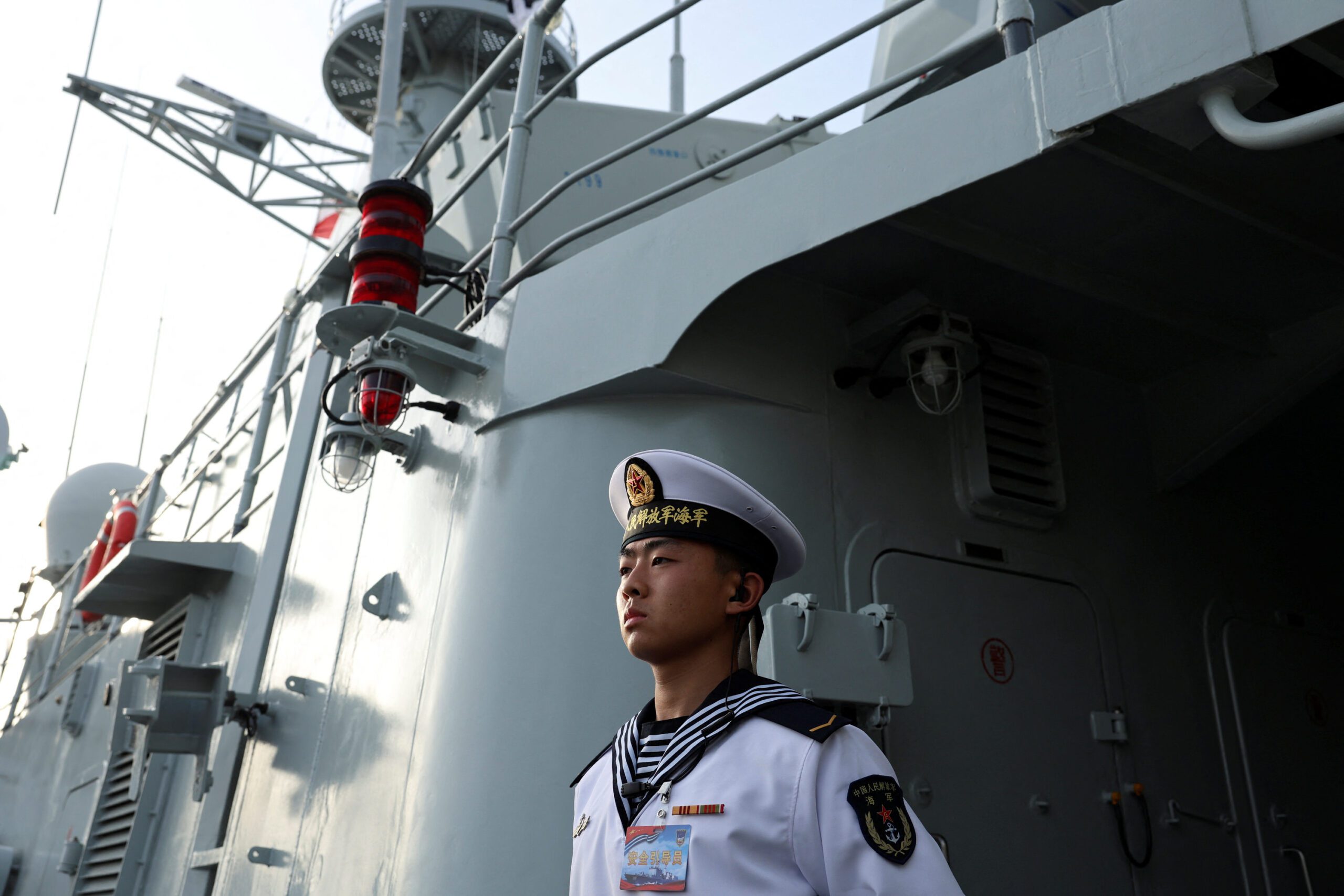Taiwan Military Practices Repelling a Chinese Assault From the Sea
Taiwan's military on Thursday simulated repelling a Chinese assault from the sea, integrating shore-launched missiles and drones with fast patrol boats to stop an attempted invasion.

By Ben Westcott and James Mayger
Feb 19, 2025 (Bloomberg) –Three Chinese warships have been spotted in international waters off the coast of Australia’s largest city, Sydney, in a rare show of military might that will likely test diplomatic ties between Canberra and Beijing.
The People’s Liberation Navy’s Jiangkai-class frigate Hengyang, the Renhai-class guided-missile cruiser Zunyi and the Fuchi-class replenishment vessel Weishanhu are currently operating off the east coast of Australia, the Department of Defence in Canberra said in an emailed statement late Wednesday.
The Australian government didn’t say how close the warships had come to the heavily populated east coast, but the Financial Times reported they were about 150 nautical miles (280 kilometers) off of Sydney and being shadowed by the Australian navy. If confirmed, that would be within Australia’s exclusive economic zone, which stretches 200 nautical miles from the country’s shores.
“I can’t think, outside of port visits, that this has happened before, so close to the east coast,” said Sam Roggeveen, director of the Lowy Institute think tank’s International Security Program. He believes it was the first time the powerful Renhai-class warship had been seen so far away from Chinese waters.
“These kinds of deployments are still comparatively rare, but they’re going to increase in frequency as the fleet grows, and the fleet modernizes,” Roggeveen added.
Speaking to Sky News on Thursday morning, Defence Minister Richard Marles said the Australian military would be watching the three vessels’ “every move,” but emphasized they weren’t doing anything that was against international law.
“There is no doubt that this is, not unprecedented, but an unusual event. And just as they have a right to be in international waters, which is what they are doing, we have a right to be prudent and to make sure that we are surveilling them, which is what we are doing,” Marles said.
The Australian Defence Department said in a statement last week that it was aware the three ships had entered Australia’s maritime approaches.
When asked about the naval task force at a Chinese Ministry of Foreign Affairs news conference Wednesday, spokesman Guo Jiakun said he wasn’t familiar with what was mentioned, adding: “I’d refer you to the competent Chinese authorities for relevant question.”
Along with other Western nations including the US, Australia regularly takes part in freedom of navigation operations around the South China Sea and the Taiwan Strait. In September, Australia, Japan and New Zealand sent warships through the Taiwan Strait in a rare defiance of China in those waters by three US allies. On the same day, Beijing fired its first intercontinental ballistic missile into the Pacific Ocean in 44 years.
At the time, a spokesperson for Australia’s military said the transit was conducted “in accordance with international law.”
The arrival of the Chinese warships comes after Canberra expressed its concern to Beijing over an “unsafe and unprofessional” interaction between a Chinese military aircraft and an Australian plane over the South China Sea on Feb. 11.
Relations between China and Australia have rapidly improved in the wake of the election of the center-left Labor government in May 2022, which saw the lifting of a range of trade curbs imposed by Beijing at a low point in ties. However, a series of incidents between the two countries’ militaries across the region has threatened to erode that stabilization.
Euan Graham, acting director of Defence Strategy and National Security at the Australian Strategic Policy Institute think tank, said Australians should expect more visits by Chinese naval vessels in the long term as Beijing flexes its global military reach.
“Australia can’t deter or stop that,” he said, pointing to Canberra’s freedom of navigation operations in the South China Sea. “There may also just be a signal to say, if you come in our backyard, we’ll be in yours.”
© 2025 Bloomberg L.P.
This article contains reporting from Bloomberg, published under license.

Sign up for gCaptain’s newsletter and never miss an update

Subscribe to gCaptain Daily and stay informed with the latest global maritime and offshore news
Essential news coupled with the finest maritime content sourced from across the globe.
Sign Up